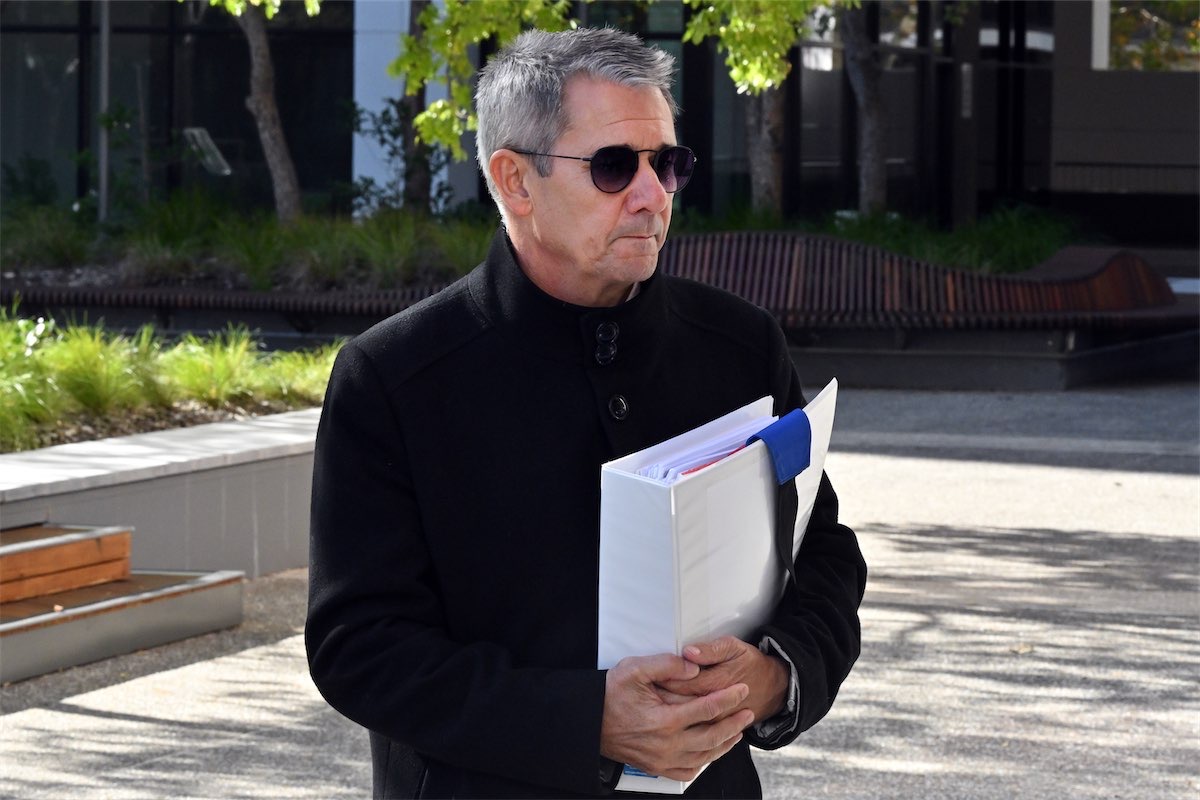
By Paul Osborne in Canberra
THE ACT’s top prosecutor was right to go ahead with the prosecution of former Liberal staffer Bruce Lehrmann based on the information available to police and his office, an inquiry into how the case was handled has found.
But the ACT government is investigating whether the early release of the report constitutes a legal breach and whether further action is required.
A board of inquiry – chaired by former Queensland judge Walter Sofronoff KC – was set up to examine accusations from police and prosecutors about each other’s conduct during Mr Lehrmann’s high-profile rape trial.
Brittany Higgins accused Mr Lehrmann, her former colleague, of raping her inside a ministerial office at Parliament House after a night out in 2019. Mr Lehrmann has always denied the allegation.
The ACT government released the 839-page report in full on Monday afternoon along with its response.
A key finding by the inquiry was that it was appropriate to prosecute the matter on the information available to ACT Policing and the director of public prosecutions.
Several recommendations related to improving police policies, including defining the threshold required to charge a suspect, updates to how police store victim counselling notes and training on compiling briefs of evidence.
The government has agreed to implement eight of the 10 recommendations.
ACT Attorney-General Shane Rattenbury said the report should be a wake up call for police and prosecutors.
He said the two needed to ensure they could work together.
“(The recommendations) provide very practical and concrete steps for us to implement that will improve the justice system here in the ACT and seek to avoid the issues… identified as potential weaknesses in the system,” he told reporters in Canberra.
Mr Rattenbury said the government had no evidence of similar mistakes in other cases which could have prejudiced criminal proceedings.
“It found instances of poor individual behaviour and poor choices compounded by a heightened media and political environment.”
Chief Minister Andrew Barr said despite the circumstances surrounding its early release, the government was confident in the report.
It agreed in principle to the final two, subject to further consultation with the office of the director of public prosecutions, ACT Policing, victims of crime commissioner and legal stakeholders.
In its response, the government reiterated it was “extremely disappointed” the report had been released prematurely.
Mr Sofronoff provided a copy to select media outlets last week, without the knowledge or permission of the territory government, which resulted in widespread reporting of the negative findings against Director of Public Prosecutions Shane Drumgold.
The report was also provided to a media organisation before Chief Minister Andrew Barr received it and briefings were given to some reporters while the inquiry was under way.
“The government is currently seeking advice as to whether the premature release may have constituted a breach of the Inquiries Act 1991 and if any further action is required,” the response said.
“Nonetheless, the government maintains confidence in the report recommendations and our focus remains on implementation.”
Mr Sofronoff made “several serious findings of misconduct” against Mr Drumgold including that it had become clear he had “lost objectivity and did not act with fairness and detachment as was required by his role”.
“Mr Drumgold kept the defence in the dark about steps he was taking to deny them … documents,” the report said.
“Criminal litigation is not a poker game in which a prosecutor can hide the cards.”
He also found Mr Drumgold “knowingly lied to the (ACT) chief justice” about the nature of a note made about a meeting with broadcaster Lisa Wilkinson about a speech she later made when she won a Logie for her interview with Ms Higgins.
But while Mr Drumgold accepted his conduct was “less than perfect”, he rejected many of the adverse findings against him.
“While I acknowledge I made mistakes, I strongly dispute that I engaged in deliberate or underhanded conduct in the trial or that I was dishonest,” he said in a statement announcing his resignation on Sunday.
In October, Mr Lehrmann faced a criminal trial in the ACT Supreme Court but juror misconduct derailed the proceedings and the trial was discontinued.
Mr Drumgold ultimately dropped the prosecution against Mr Lehrmann because of his fears about the impact of a second trial on Ms Higgins’ mental health.
Acting DPP Anthony Williamson will continue in the role while a recruitment process to permanently fill the position is undertaken.
A government review of the 18 criminal cases Mr Drumgold conducted, or in which he participated in, since his appointment as DPP in 2019 found “no more detailed examination is warranted”.
The inquiry says ACT police officers “accomplished a thorough investigation … (but) made some mistakes”. None of the mistakes affected the substance of the investigation and none of them prejudiced the case.
Sofronoff’s recommendations include:
- Training of police officers on the handling of counselling notes, the threshold to charge someone over sexual offences and the adjudication process.
* Law change to ban the disclosure of protected confidences at the investigation stage of the criminal process.
* Updating the ACT’s prosecutions policy to provide a process for recording retrial decisions.
* Set up a new complaints mechanism involving the DPP and ACT Policing.
* Police are to inform a complainant once a decision to charge has been reached, unless it would prejudice an investigation or a matter more generally.
Who can be trusted?
In a world of spin and confusion, there’s never been a more important time to support independent journalism in Canberra.
If you trust our work online and want to enforce the power of independent voices, I invite you to make a small contribution.
Every dollar of support is invested back into our journalism to help keep citynews.com.au strong and free.
Thank you,
Ian Meikle, editor









Leave a Reply